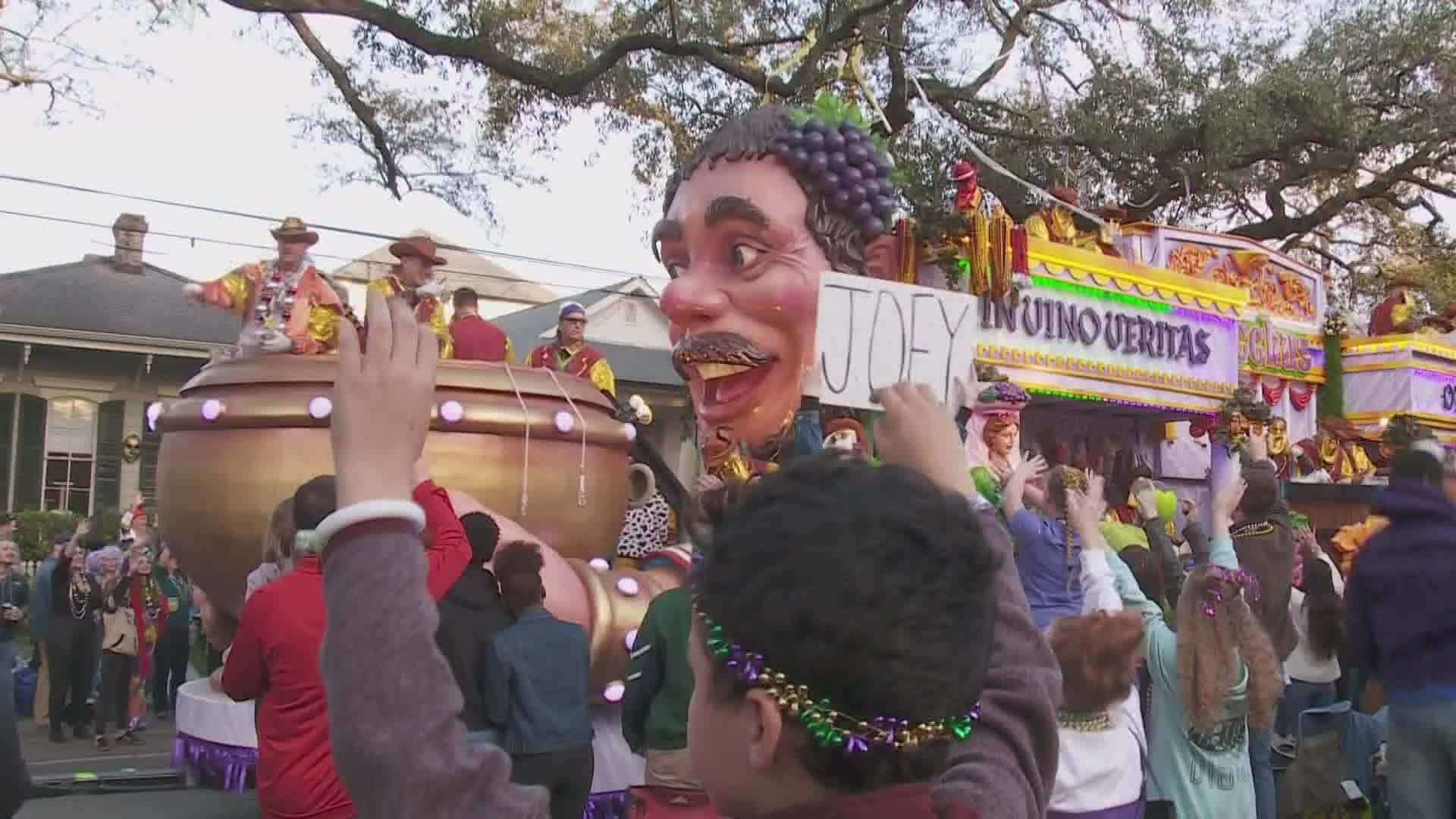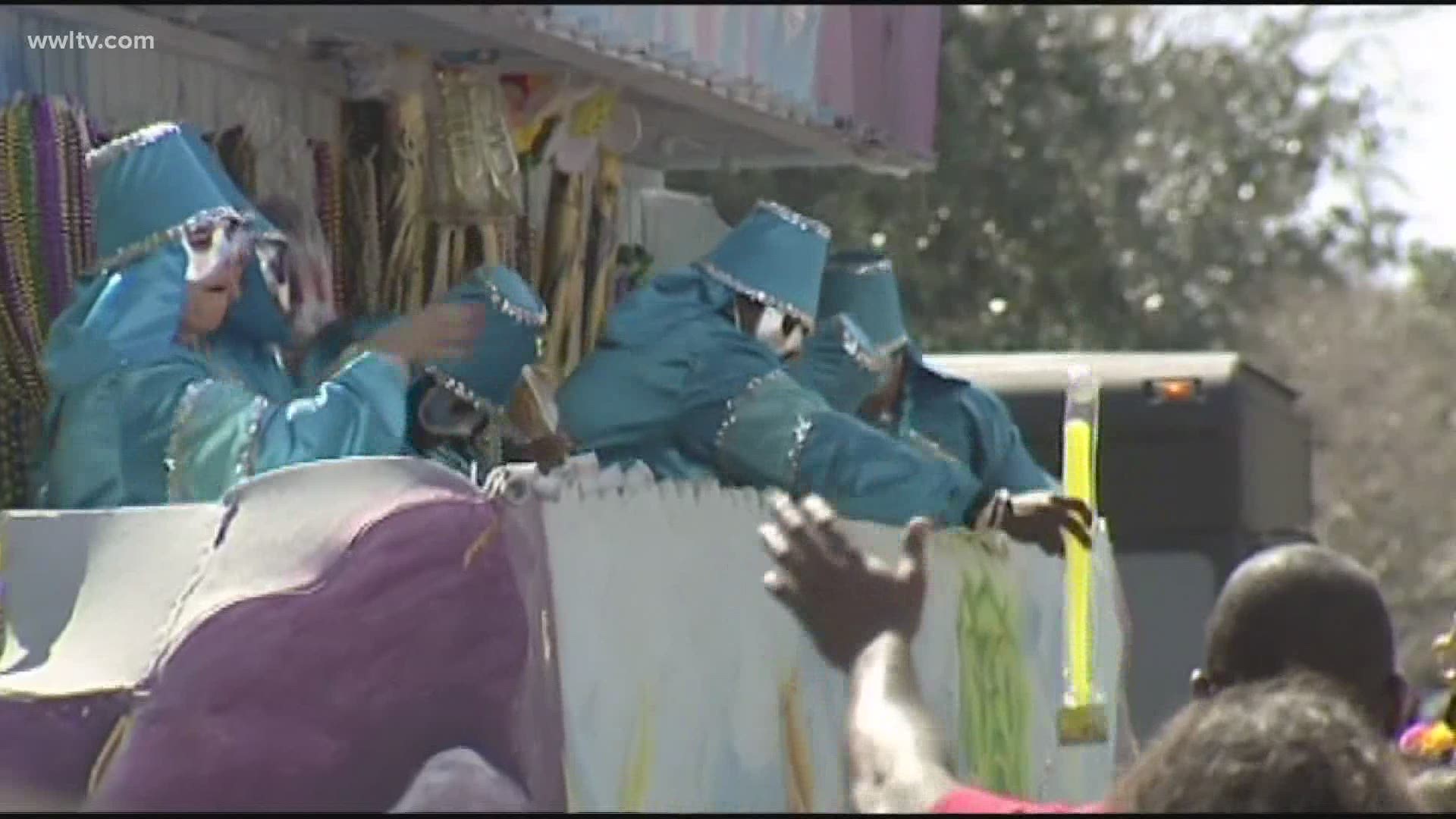NEW ORLEANS — Mayor LaToya Cantrell on Thursday told Carnival krewe captains to submit recommendations by Dec. 5 on how their parades might proceed with Mardi Gras 2021, while observing guidelines to prevent the spread of coronavirus.
Cantrell repeated her announcement earlier in the day that Mardi Gras 2021 is “not cancelled, just different.” She and other city leaders spoke at a virtual meeting of the Mayor’s Mardi Gras Advisory Committee, which is made up of captains and representatives of all the city’s parading clubs.
“It is a religious holiday and in no way will it be cancelled in our city, but it will be something different,” she said.
At the start of the meeting, Dr. Takeisha Davis, the CEO of New Orleans East Hospital and a member of the Mystic Krewe of Femme Fatale, spoke on behalf of a subcommittee formed by the group to address COVID-19 safety concerns. Davis said that leading that group was “an impossible task” but important if Carnival is to proceed safely with COVID-19 still spreading throughout the community.
The group’s recommendations, which would have to be considered by the City Council, include strongly urging paradegoers to wear masks that cover their nose and mouth, to prevent the spread of the virus. They also recommend paradegoers take their temperature before going to a parade, as well as bringing hand sanitizer and adhering to social distancing along the parade route. Krewe members who are members of the subcommittee would also urge those who are sick, high risk or vulnerable stay home.
In what is sure to be seen as an insurmountable request, the subcommittee is also suggesting that alcohol consumption by paradegoers and float riders be limited. They also recommend that “high value” throws be limited, to discourage crowds from gathering and competing for them. They also suggest krewes be required to have float riders stay six feet apart on a float, which might mean adding more floats to a parade, which could run afoul of existing city rules mandating the lengths of parades. It would also add to the costs of staging a parade.
A city ordinance already requires float riders wear a mask, but the subcommittee recommended that krewes require float riders to wear masks that cover their nose and mouth.
Tourists should be encouraged to get a COVID-19 test before coming to parades, the subcommittee recommended.
Krewe leaders also suggested that local TV stations televise more Carnival parades, to offer an alternative to those who cannot or should not attend in person.
The committee also recommended that there be coordination between local parishes so that the recommendations are followed by all local krewes. That hinted at the question raised by some recently about whether parades that are cancelled in New Orleans might try to parade in Jefferson Parish or other local parishes.
“We absolutely love Mardi Gras but we want to ensure that if we go forward, we do it in the safest way possible,” Davis said.
Cantrell told krewe captains that they will need to take the lead in determining the look and feel of Mardi Gras next year. She asked them to come up with recommendations by Dec. 5, which many see as an important deadline, with the start of the Carnival season just a month away, on Jan. 6.
She suggested that krewe leaders be creative in their ideas for a safe Carnival, such as staging a televised event where the “Mayor toasts parked floats with royalty only.” She and other city leaders also suggested krewes who decide not to parade could park floats and allow timed groups of people to walk by to view them.
Cantrell acknowledged the national news headlines earlier this year that suggested Mardi Gras 2020 was a “super spreader event” which put lives at risk for COVID-19. Cantrell has said that no public health officials ever suggested canceling this year’s Mardi Gras.
“There were things we didn’t know that that we know now. What we know now is forcing us to do some things differently,” she said Thursday.
“There’s a lot of headwind to get through in order to make a traditional parade possible,” admitted James Reiss, the co-chair of the Mayor’s Mardi Gras Advisory Committee and a leader of the Rex Organization. “We want to do anything we can to celebrate the season.”
Reiss is co-chair of the committee along with Elroy James, the Zulu Social Aid and Pleasure Club president.
During her presentation, Cantrell also detailed the huge financial costs of Carnival, including expenses for public safety agencies, sanitation and parks and parkways crews, which she said total $7.6 million. She pointed out that with the city facing enormous financial challenges, Carnival costs will only add to that.
Earlier in the day, the City Council voted unanimously to pass an ordinance that would keep a krewe’s seniority intact if they decide not to parade in 2021.
So far, the krewes of NOMTOC, Oshun and Adonis have said they will not parade next year. Previously, a krewe could lose its standing if it did not roll.
“To be clear, this is not cancelling Mardi Gras parades,” said Councilwoman Kristin Palmer, who co-authored the ordinance with Jay Banks at the request of the Cantrell administration.
“This is simply a common-sense protection that crews may choose to avail themselves of should it become untenable for their organizations to participate,” Palmer said.
“The fear that folks would lose their spots, their ability to parade, is something that is definitely out there,” said Banks, who reigned as King Zulu in 2016. “We wanted to make sure that no one had to live with that.”
Mardi Gras is February 16.


